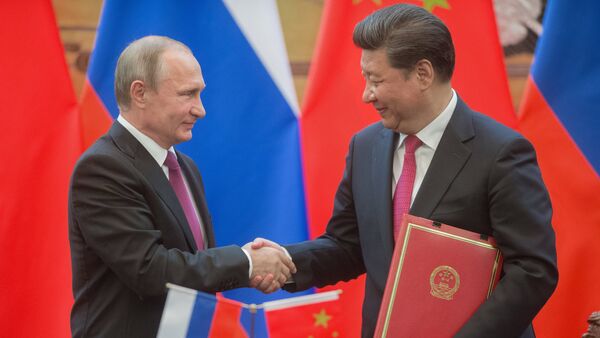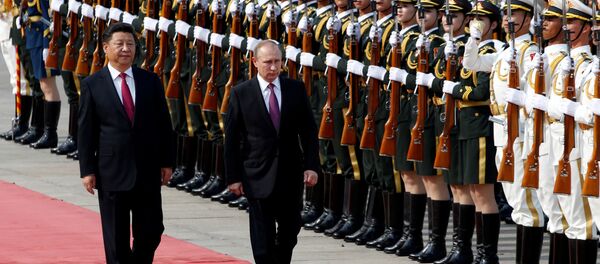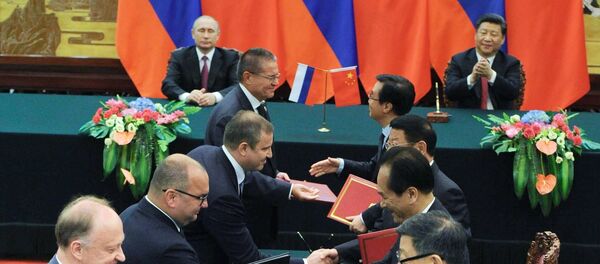Commenting on the Russian leader's arrival in Beijing on June 25 for a 'lightening visit' to China, the Chinese-language newspaper pointed out that Putin had already met with Chinese leader Xi Jinping in Tashkent only a few days earlier, where they attended the meeting of the Shanghai Cooperation Organization.
According to Duowei News, such a frequency of meetings for the heads of two states is a rarity, prompting many to conclude that 'historic changes' were forthcoming in the foreign policy of both Russia and China.
Following the meeting between Putin and Xi Jinping, the news portal suggested that the Russian-Chinese Joint Statement offered hints regarding the tectonic changes which await. The statement condemned certain "individual states and political alliances" which, according to Moscow and Beijing, undermine the global strategic balance. Here, Duowei noted, the leaders were clearly referring to the United States and NATO.
"The unprecedented severity of the declaration's wording seems to presage that in the future, China may abandon the non-aligned policy which has persisted for many years, and [mark] a historic change in relations between China and Russia."
Secondly, Putin's visit indicates Moscow's intentions to even further deepen relations with its Chinese partners.
In a recent interview with the Chinese news agency Xinhua, the Russian leader described Russian-Chinese relations: "It turns out that to say we have strategic cooperation is not enough anymore. This is why we have started talking about a comprehensive partnership and strategic collaboration. 'Comprehensive' means that we work virtually on all major avenues; 'strategic' means that we attach enormous inter-governmental importance to this work."
And here, the portal suggested, Russia's turn to the east has given Beijing an opportunity to make a U-turn in terms of its own strategy. Thus, two weeks ago, Russian and Chinese naval vessels appeared near the disputed territories in the South China Sea, triggering panic in Japan. Meanwhile, the results of the recent summit of the SCO, where members spoke out against foreign interference in regional disputes, also hinted that Beijing has found support for its position.
In the final analysis, Duowei noted, for Russia, the move closer to China has eased the "diplomatic problems" Moscow has faced as a result of the crisis in Ukraine, while for China, friendship with Russia has helped to ease the pressure being piled on by the US, Australia and other countries in East Asia.
Therefore, while both countries officially continue to adhere to the principle of non-alignment, it seems that with their positions on the most sensitive issues finding themselves more and more 'aligned', the idea of the countries' non-alignment is gradually fading away. And with the US's Asia pivot in full swing, "under the weight of policy, China is also adjusting its foreign policy; China's diplomacy may face a major turning point," Duowei News concluded.




